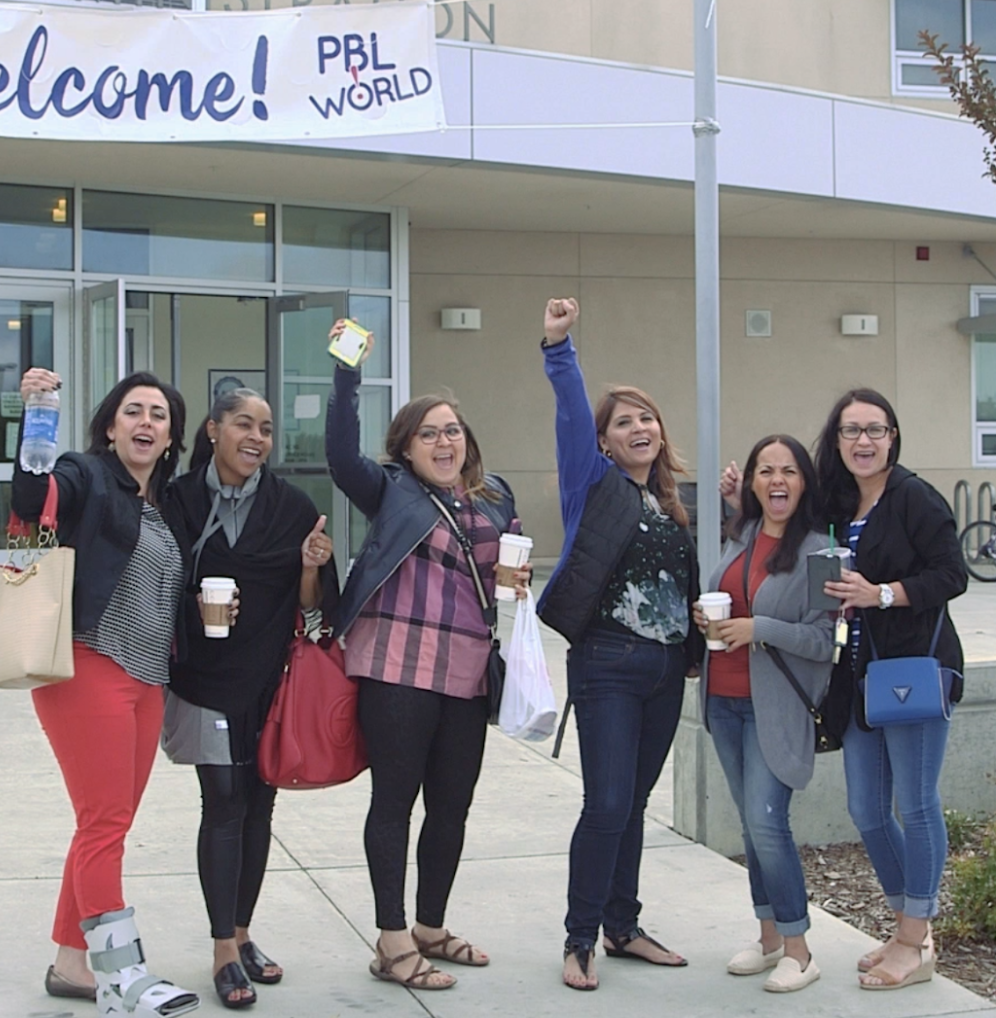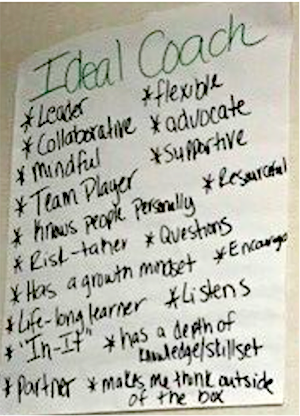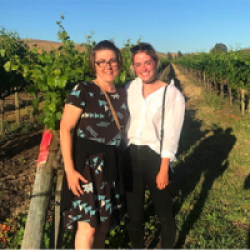 Come to PBL World 2022! Registration for this live event begins Monday, November 1, 2021! Visit PBL World 2022 for more information.
Come to PBL World 2022! Registration for this live event begins Monday, November 1, 2021! Visit PBL World 2022 for more information.
As I sit down and write this, the Bruno Mars song “Uptown Funk” plays in my head… but instead of “up-town-funk-you-up”, it’s “H-Q-P-B-L” that’s resonating with me.
High-Quality Project Based Learning (PBL) was at the center of our learning for the week I spent in Napa, CA at PBL World 2018. There were recurring themes throughout the week: trust, vulnerability, and collaboration, which are all at the core of best practices for teachers. In the relationship between students and teachers, teachers among teachers, and teachers with administration there has to be trust, vulnerability, and collaboration. With this foundation in place, the limits are endless.
Working in a large district, it was a gift to collaborate and work with like-minded educators. We don’t seem to have the time during the school year so the week together was a true blessing. We laughed, shared, and connected throughout the week, which is necessary for PBL success. Just like building classroom culture among students, educators need to have culture built among colleagues and that gift was given to us this week.
Pre-Conference Day: Project Slice
My first day at PBL World was the pre-conference, a “Project Slice”—basically a mini-project where we learned what it was like to be a student in PBL. Buck Institute National Faculty member Alicia Peletz was our instructor for the week and her energy was contagious. You felt her passion for PBL as she guided us through high quality work.
Last spring I had taken the Project Slice workshop in Bismarck, North Dakota, so this was my second time being a participant. During my first experience, it was eye-opening to say the least. I really understood the impact of a public audience for being invested in a project. I did not know who exactly who was going to be in the audience, but I knew it was going to be important community members such as business leaders, principals, or leaders from around the state, which raised the level of how I wanted to perform. It was high stakes in an authentic way. In the second Slice I still learned a lot, but the presentation was just to another group of “students” from another classroom—so it was low-stakes. They may not have really cared about our project and HAD to listen because they simply were following the teacher’s directions. Students need to feel the authentic agency behind a project in order for it to be successful.
Takeaways from the Project Slice:
- Group students before the project launch based on their strengths.
- Have the kick-off event for a project be a game.
- There is power in coming back to the “Need To Know“ chart and revisiting the driving question.
- I truly understand the benefit and craft of scaffolding information.
- Working agreements ensure that students work to the best of their ability and should be visited throughout the project to make sure everyone’s voice is being heard. Agreements also provide a level of respect and professionalism that is instilled with students. It is also very real-world applicable!
- The more choice throughout the project, the higher the student engagement and less likelihood for burnout.
- There should be a balance of work time, instruction, collaboration, scaffolding and breaks!!
- Rubrics should be co-created with students but leaving out the “basic” and “advanced” column. The purpose is to get high quality work without putting a limit on how far they take the project. If you put criteria for the advanced column, students will match that instead of thinking of ways to improve their product on their own. Leaving out the basic column avoids conversations that are “didn’t” heavy, where you’re just saying, “You didn’t do this… and this…”
- Self-reflections and feedback provide timely scaffolding to the project.
PBL Coaching Workshop
For the next three days, I participated in the workshop for instructional coaches. In one key group activity, we came up with words that describe the “ideal coach” while playing “Rip, Slap, Pass,” in which you answer the prompt as fast as you can, rip the sticky note, slap it on the table, then pass to teammate. Below is the poster with our top coach traits. When we think of any staff member or student I felt like these were the characteristics that everyone wants to have!

Takeaways from the PBL Coaching Workshop
- Asking staff questions like, “What do you want from me?” “How can I help you where you’re at?” which are non-threatening questions and provide staff with the feeling that you are truly there to help.
- Lift staff up so they want to do another project or ask for coaching opportunities.
- Teachers should be observing/coaching other teachers and teachers should be observing/coaching coaches.
- If there is no buy-in for staff members, meet them where they are at but work toward instilling one element of the Project Based Teaching Practices, such as public audience or adding more inquiry.
- High quality PBL cannot be successful if it is chunked. It needs to be dispersed throughout the day. There can’t be blocks of reading...math...PBL...music...science. It has to be interdisciplinary.
- Coaching is fun!!!!
One line I really gravitated to was “listening to understand”—not just simply listening. When humans listen to understand, there is a form of compassion that comes through. We remove ourselves from the question and really understand the content versus who is asking the question. This should be a skill that is instilled with our students.
The Best Professional Development Experience
PBL World was the best training I have ever experienced as an educator. Working with PBL for the past four years, I felt like the coaching workshop was exactly what I needed. We had rich discussions and numerous ideas for the future. I am very humbled and blessed for this opportunity that I was given. Bismarck Public Schools has some gems and I’m so happy that I get to collaborate with them and learn from them. Cheers to a memorable PBL World experience in Napa Valley, California!

